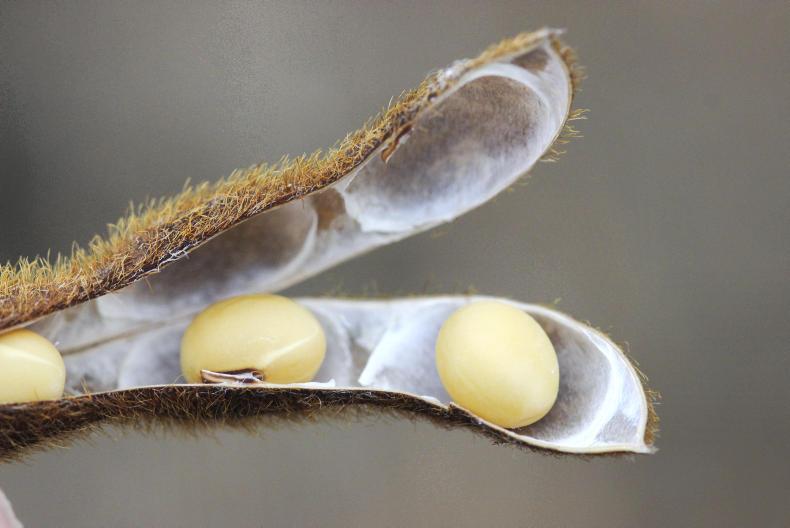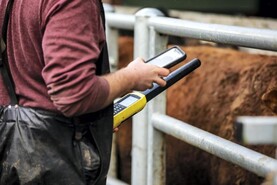A new report has identified non-genetically modified (GM) and organic feeds as potential growth areas for EU-grown plant proteins.
The European Commission today (22 November) released a report examining ways in which the percentage of plant proteins grown in Europe could be increased.
Latest figures for EU plant protein demand show 27m tonnes is required each year of which almost two-thirds is imported.
Agriculture Commissioner Phil Hogan said: "Plant protein is an essential component of our European agri-food sector, which produces food and drink to the highest standards in the world. However, due to a variety of market and climatic factors, European protein crop production is not sufficient to cover the growing demand.”
Self-sufficiency
Depending on the protein source, EU self-sufficiency varies substantially with rapeseed the highest at 79% and soya the lowest at 5%. As a result, 17m tonnes of crude protein is imported every year, of which 13m tonnes is soya.
The premium feed market was identified as a segment where further EU-grown plant proteins could be used. The report found EU consumers were increasingly conscious of how animal products were produced and valued higher standards.
These higher standards came in the form of a lower environmental impact (climate change/deforestation) and a different type of production (organic or non-GM).
Human intake
Human plant protein intake, which is rising in many EU regions, was also identified as another area for growth. Market for meat and dairy alternatives are currently growing at an annual rate of 14% and 11% respectively.
The report said further CAP support for farmers growing protein crops would be needed to realise the growth potential for EU plant proteins.
Since the CAP 2013 reform included supports for protein crops, the soya area in the EU has doubled to almost 1m hectares.
Similarly, in the case of pulses production has almost tripled in the EU since 2013.
Improved market analysis and transparency, increased competitiveness through research and innovation and promoting the benefits of plant proteins were also suggested as ways to increase EU plant protein production.
Read more
Having a look at soya beans
A new report has identified non-genetically modified (GM) and organic feeds as potential growth areas for EU-grown plant proteins.
The European Commission today (22 November) released a report examining ways in which the percentage of plant proteins grown in Europe could be increased.
Latest figures for EU plant protein demand show 27m tonnes is required each year of which almost two-thirds is imported.
Agriculture Commissioner Phil Hogan said: "Plant protein is an essential component of our European agri-food sector, which produces food and drink to the highest standards in the world. However, due to a variety of market and climatic factors, European protein crop production is not sufficient to cover the growing demand.”
Self-sufficiency
Depending on the protein source, EU self-sufficiency varies substantially with rapeseed the highest at 79% and soya the lowest at 5%. As a result, 17m tonnes of crude protein is imported every year, of which 13m tonnes is soya.
The premium feed market was identified as a segment where further EU-grown plant proteins could be used. The report found EU consumers were increasingly conscious of how animal products were produced and valued higher standards.
These higher standards came in the form of a lower environmental impact (climate change/deforestation) and a different type of production (organic or non-GM).
Human intake
Human plant protein intake, which is rising in many EU regions, was also identified as another area for growth. Market for meat and dairy alternatives are currently growing at an annual rate of 14% and 11% respectively.
The report said further CAP support for farmers growing protein crops would be needed to realise the growth potential for EU plant proteins.
Since the CAP 2013 reform included supports for protein crops, the soya area in the EU has doubled to almost 1m hectares.
Similarly, in the case of pulses production has almost tripled in the EU since 2013.
Improved market analysis and transparency, increased competitiveness through research and innovation and promoting the benefits of plant proteins were also suggested as ways to increase EU plant protein production.
Read more
Having a look at soya beans






 This is a subscriber-only article
This is a subscriber-only article










SHARING OPTIONS: